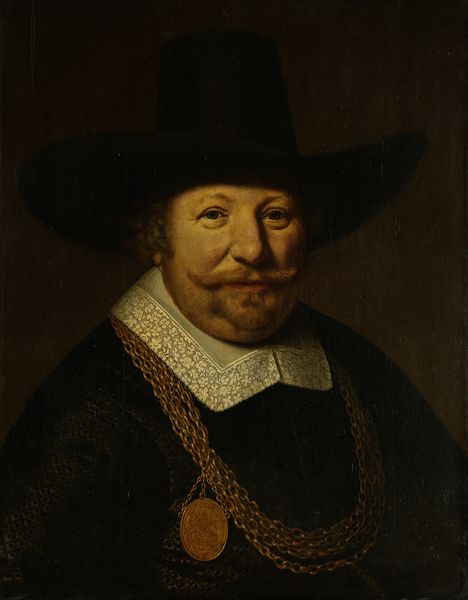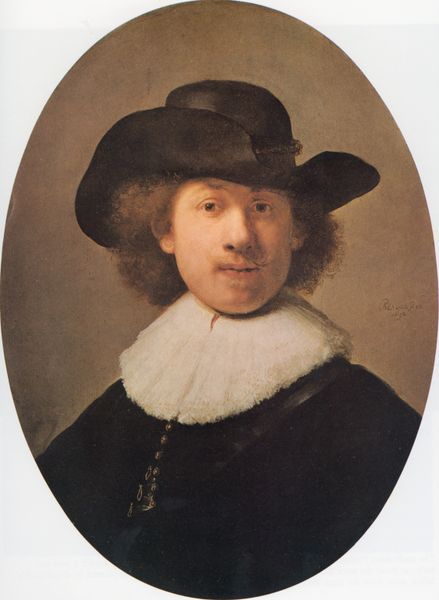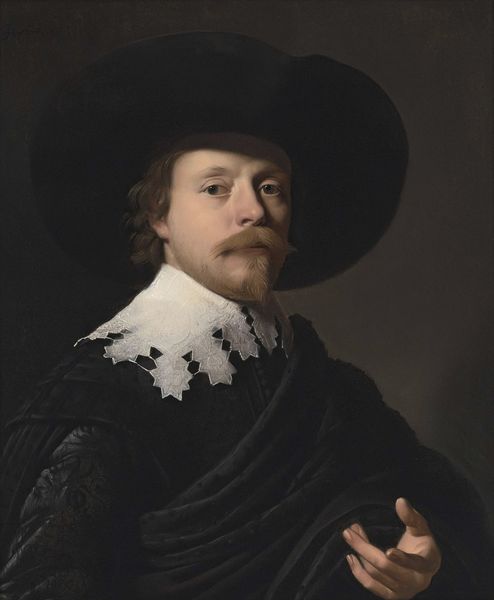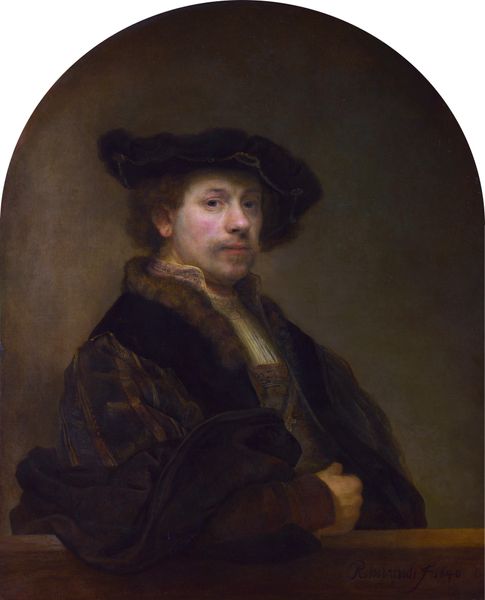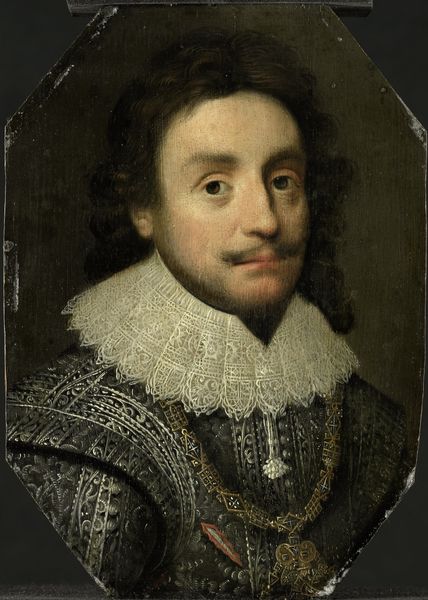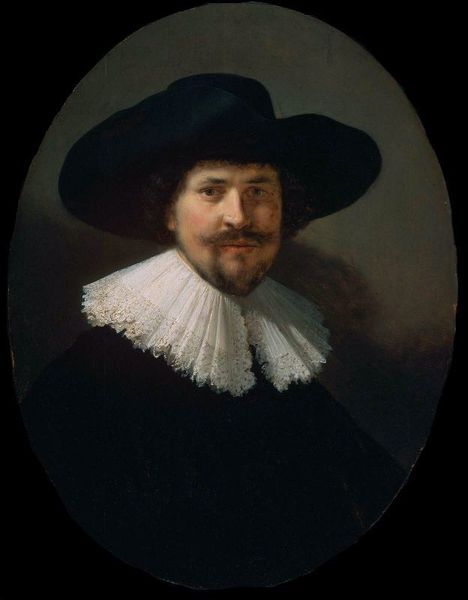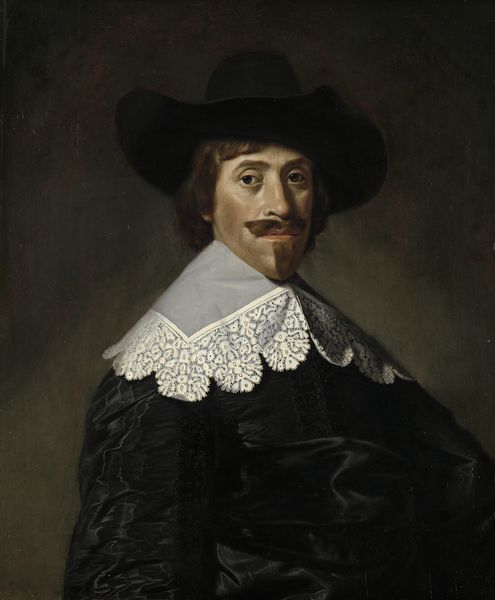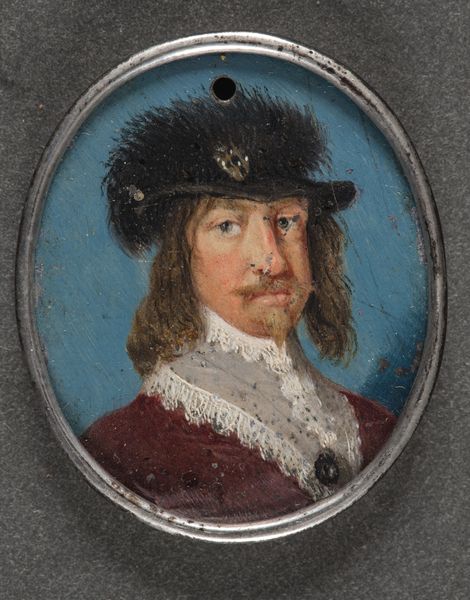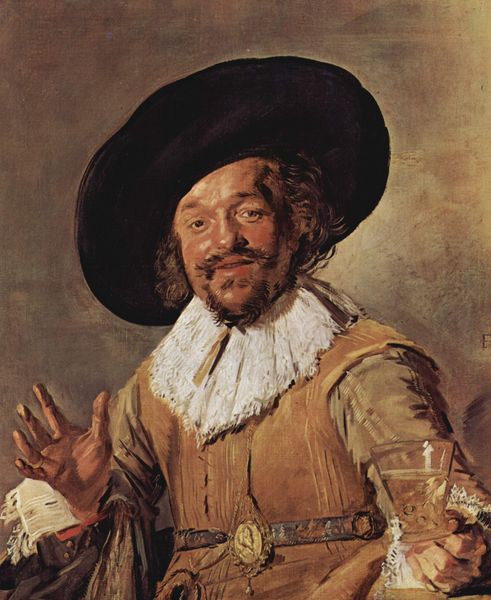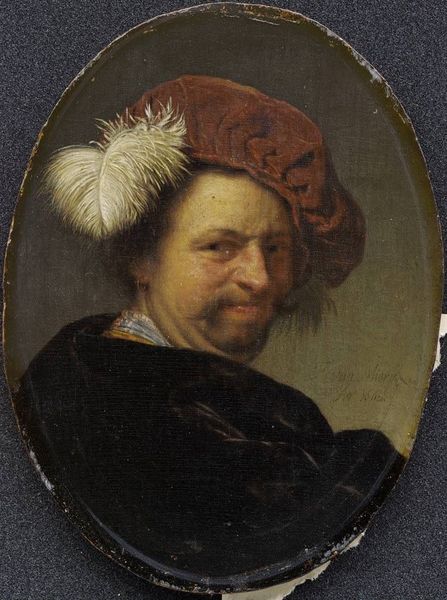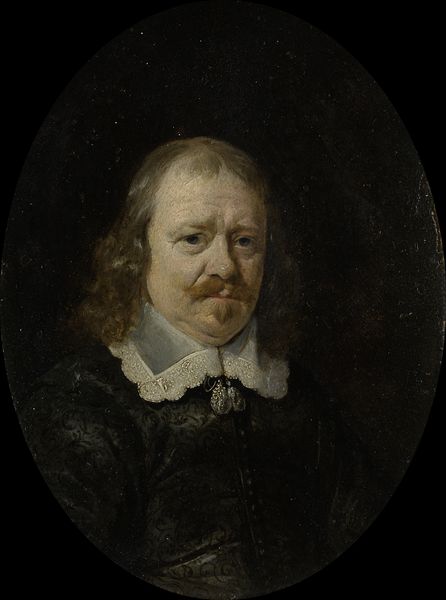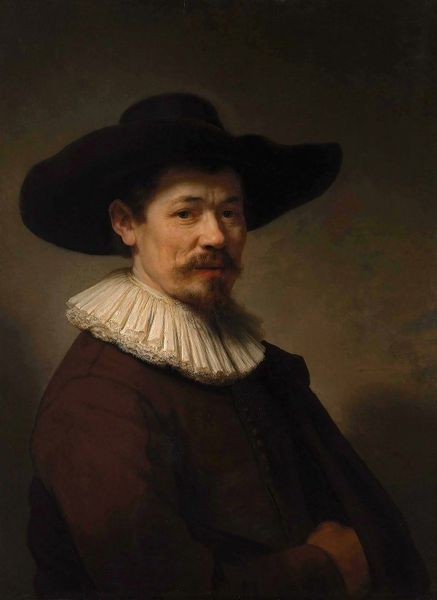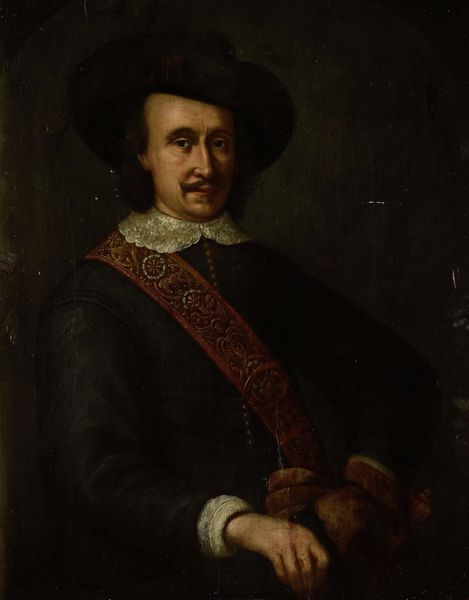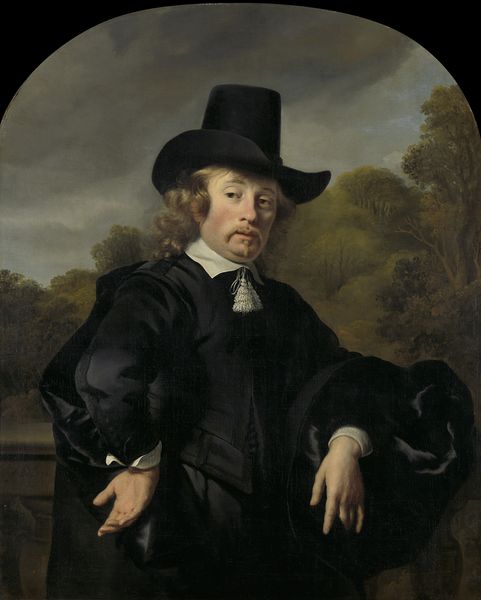
painting, oil-paint
portrait
baroque
dutch-golden-age
painting
oil-paint
Copyright: Public domain
Pieter Codde, a contemporary of Rembrandt, painted this “Portrait of a Man” in the Dutch Golden Age. During this time, portraits were more than simple likenesses; they were statements of social standing and individual identity. This man’s dark attire, broad-brimmed hat, and elaborate lace collar suggest a person of considerable means. Yet, there's an ambiguity here. Codde captures a certain reserved quality in the sitter's eyes, hinting at the complexities beneath the surface of wealth and status. Consider the historical context: the Dutch Republic was a rising mercantile power, and portraits like these reflected a new sense of civic pride and personal achievement. They also tell us about the gendered expectations of the time. Men were expected to project an image of authority and self-control, evident in the way our sitter presents himself. It's a dance between personal expression and societal expectations.
Comments
No comments
Be the first to comment and join the conversation on the ultimate creative platform.
